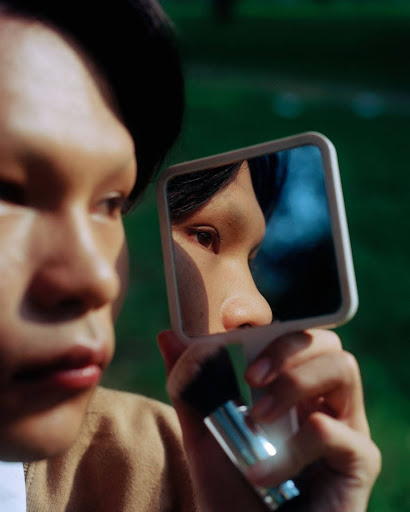It’s January, which means you can’t have a conversation without talking about your New Year’s resolutions. They’re meant to motivate us to be better and feel better and make the upcoming year our best one yet — but why do our resolutions often make us feel worse? Most of us spend the first few months of the year vacillating between the stress of keeping our resolutions and the anxiety of failing at them. And then we usually just forget about them until December rolls around again.
But this year might be different. This year we might actually stick with them.
Mental health has been a priority for young people for years, and it’s seeped its way into every facet of our lives — often for the better. And it has now finally, thankfully, come for our New Year’s resolutions, especially since it doesn’t do us any good to keep the things that deteriorate our health, despite their best intentions.
In 2024, we’ve replaced highly aspirational, lofty (and dread-inducing) goals with more reasonable modifications that are not only more achievable, but also inspire happiness.
Health: From looking good to feeling good
In our recent health and wellness study, Mind, Body, Community, young people told us that the No. 1 thing essential to being healthy is feeling good (89%). In 2024, young people are moving their bodies not with the end goal of fitting into that one dress or their once-favorite jeans, but to feel good in their bodies and in their minds. Take #CozyCardio as one example. With over 7M views on TikTok at the time of writing, the trend is all about rethinking our approach to exercise and debunking the idea of “no pain, no gain.” With mood music and candles, and sometimes even fuzzy slippers, the focus of cozy cardio is to create a vibe that makes you actually look forward to working out.
Fun and health are no longer opposing concepts for young people. In fact, they see social experiences as not just fun, but an investment in their health. When asked what they consider essential to being healthy, 57% of Gen Z said engaging in meaningful experiences, while 61% said making time for the people who matter.
Social Life: From saying “yes” to “no”
While going out and having fun is important to their health, trying to cram in every activity and keeping up with everyone they know can be overwhelming and draining. So this year, they’re making their boundaries clear. In our recent report, The Great Vibe Shift, 6 in 10 young people told us they made changes during the pandemic to set more boundaries — which they’ve continued to maintain.
Instead of saying yes to everything, young people are resolving to say no, deciding to stay in, and enjoying alone time. Fifty-eight percent of young people say that they value personal time more today than they did before the pandemic.
Passions: From becoming an expert to having fun
With creativity at their core, young people have picked up more skills and hobbies than ever before, from cooking to knitting to interior design. They are looking to their passions to add pleasure to their lives: 73% of young people say that the experience of joy and pleasure is important to their health.
But to truly enjoy their hobbies — both old and new — they don’t want to be burdened with any pressure, which often means not actually needing to be good at it. They aren’t looking to become an expert, break records, or turn a profit, all of which adds stress and takes the fun out of it. Instead of turning their hobbies into a side hustle or a full-blown business, this year many are aiming to dabble in them with the singular goal of having fun.
It’s time for us to rethink what “new year, new me” can mean. It’s not always the loftiest resolutions that will drive the biggest changes. Leading with fun and pleasure might just be the secret to getting our resolutions to stick, and making us feel good, which is really the whole point of resolutions in the first place.
To read our latest health and wellness study Mind, Body, Community download here.
Want more. Contact us insights@vice.com



